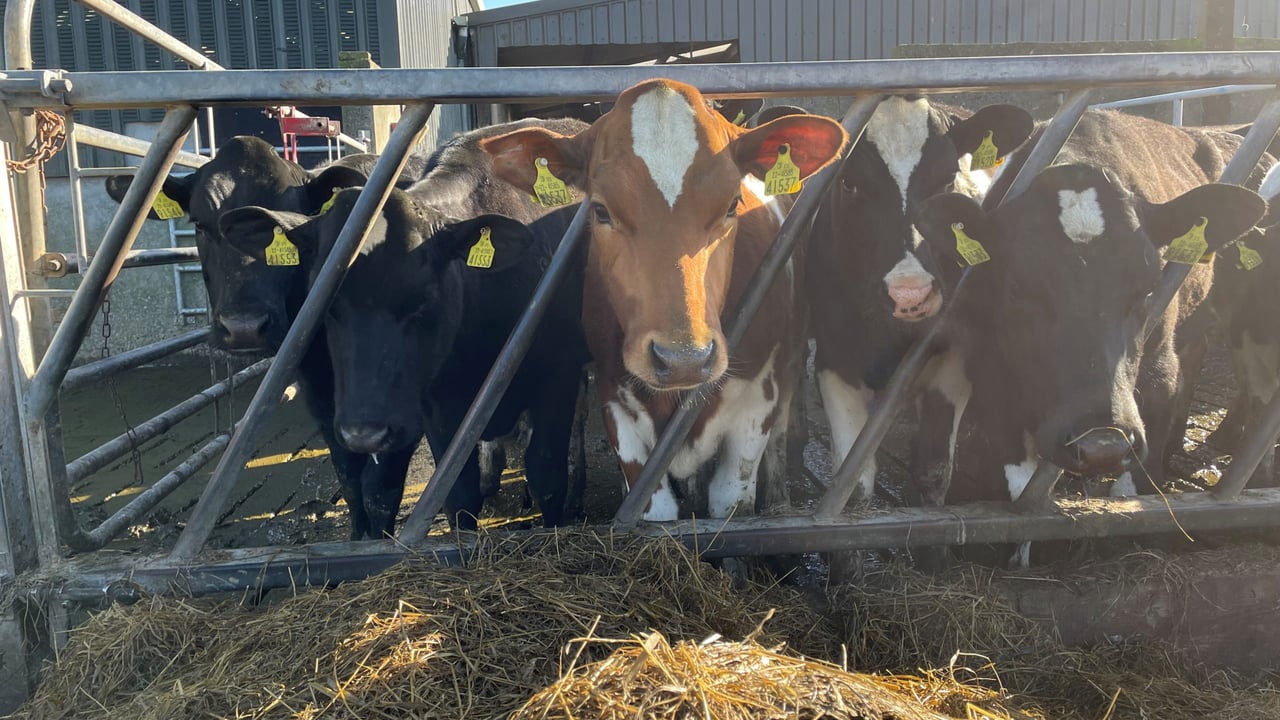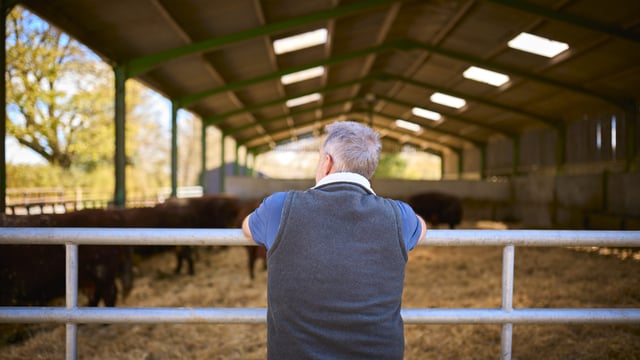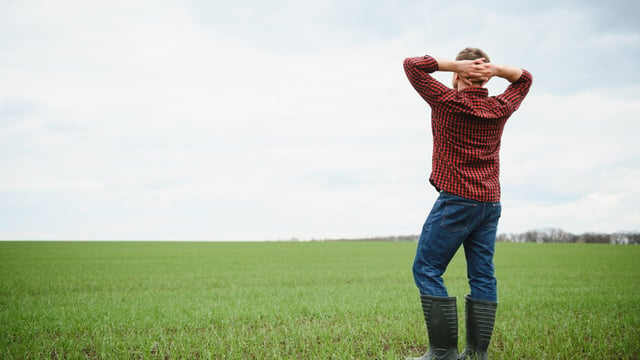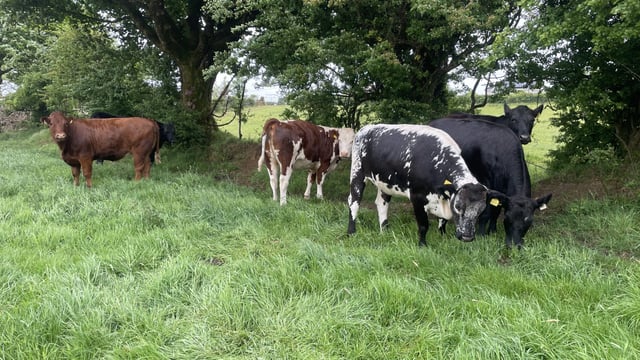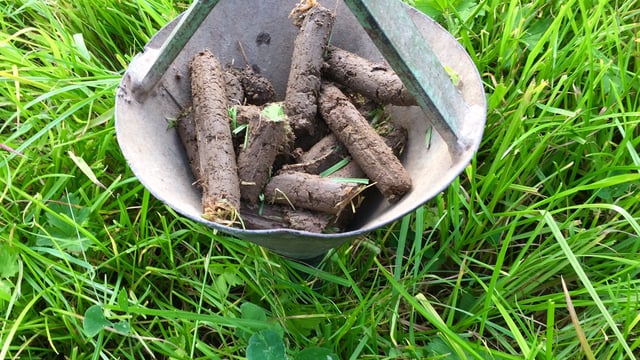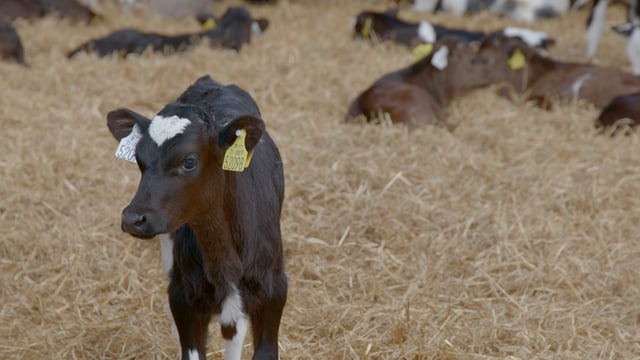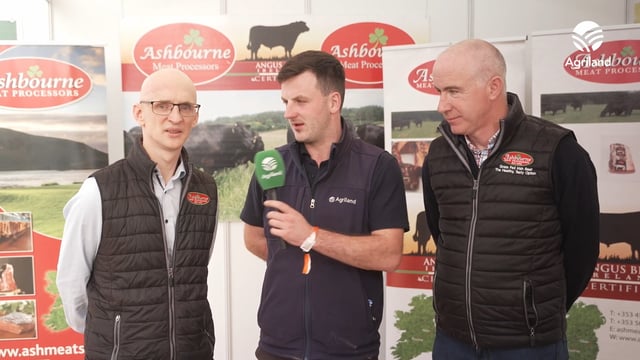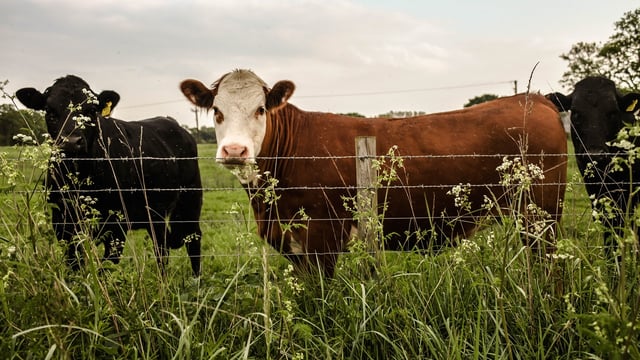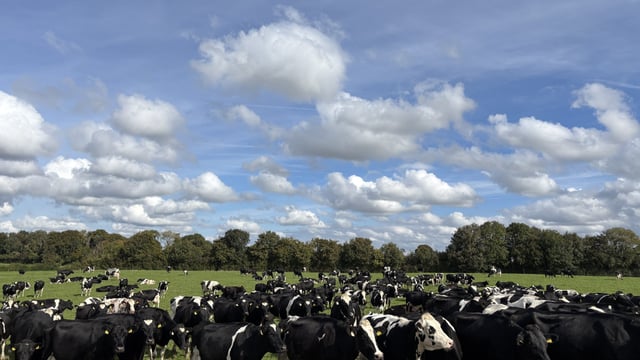Watch: Increase of dairy AI is positive but more heifers still needed
Agriland spoke with Alan Clarke of Cows.ie to see what the outlook was for the trade of heifers amid high stock prices and supply shortages.
Clarke mentioned that "there's a lack of animals about the place" which has led to a surge in prices for stock.
A concerning trend from this year's calving season was the drop in dairy female calf registrations, which was down significantly.
By April 1, 2025, there was 38,000 less dairy heifer calf births compared compared to the same period last year.
This amounts to a 11.5% drop in 2025, which will have a knock-on effect on replacement heifers available in 2027.
The number of first calved heifers recorded by April 1 was nearly 25,000 fewer than in 2024, which represented a 9% drop.
While increased usage of dairy artificial insemination (AI) in the breeding season this year is set to recover the number of dairy heifer calf births back to 2024 levels, Clarke would like to see this trend escalate even more so coming into the autumn breeding season as well as the spring breeding season.
Clarke noted that milk price has dropped recently, but does not think it is going to have an impact on the price of stock anytime soon.
He added: "Globally, we see that the numbers all over the world are down, so it's great to see that the number of dairy AI is back up".
Dairy heifers
Clarke urged that Ireland needs surplus heifers as, with challenges such as TB, "there is a serious lack of surplus stock for farmers to keep on going at the numbers they want to".
He added that, for Cows.ie, they want to see surplus stock on the ground to allow them to export cattle and source cattle in Ireland for farmers.
According to the Cows.ie representative, the trend is that many farmers are using sexed semen to breed their own replacements and using beef straws for the rest of the herd which is causing a shortage.
"We would always be encouraging to have more of them because there is a shortage and the prices are excellent for stock at the moment", he said.
This makes it a win-win for farmers as it ensures they have enough quality replacements for themselves and can benefit from high prices of selling the surplus heifers.
Regarding breeding extra dairy heifers, Clarke added: "It's well worth the value, maybe it hasn't been in the past."
He noted that in times of high stock prices, farmers benefit from breeding their own.
He said: "There's definitely no better stock than your own stock in these times of high prices."
Clarke felt that Irish farmers are leading the way with some of the best genetics in the world, noting that "Irish farmers are at the top of their game in terms of what they are doing in terms of EBI and production figures".
This has been achieved in spite of many farmers moving away from Jersey genetics to achieve high solids percentages, with Clarke highlighting that the Holstein Friesian is now producing top solids of up to 9%.
Speaking to Clarke, it emerged that a good idea to fully utilise the best of Irish genetics and drive on genetic gain in the national herd would to have arrangements in place for top genetic merit herds to breed surplus stock that would be made available for lower genetic herds looking to adopt the top genetics.
"It would be excellent if there was a contract in place to get the top percentage of herds and get more of their stock into the market - that's what everyone wants, they want that high genetic merit animal."
Between Cows.ie and the Irish Holstein Friesian Association (IHFA), they noticed a shortage of heifer calves and shortage of replacements emerging in the national herd, so they set up a system to encourage farmers to use more sexed semen, using more on their heifers instead of just using it on the heifers they want to breed off.
Clarke said: "It's all about trying to increase the number of cows in Ireland back up, we all know that the national herd is well down and you see those figures constantly falling.
"To keep the dairy thing going, we are going to need more heifers on the ground."
The Cows.ie representative also mentioned the company's success in sending large exports of heifers across to Algeria, with the first boat going in January of 2024, followed by another one in January of 2025 and another one set for October this year, adding that the heifers that have went over have been performing really well.
He highlighted the strong demand for the Irish genetics and said "They come to Ireland because our heifers are of the highest fertility, have size, strength and power.
"They really like what we are doing here and have that grass-fed image of them".
There will be another boat going in the coming weeks with 1,700 heifers set to set sail to Algeria, with Clarke hopeful that it will be a continuing contract.

